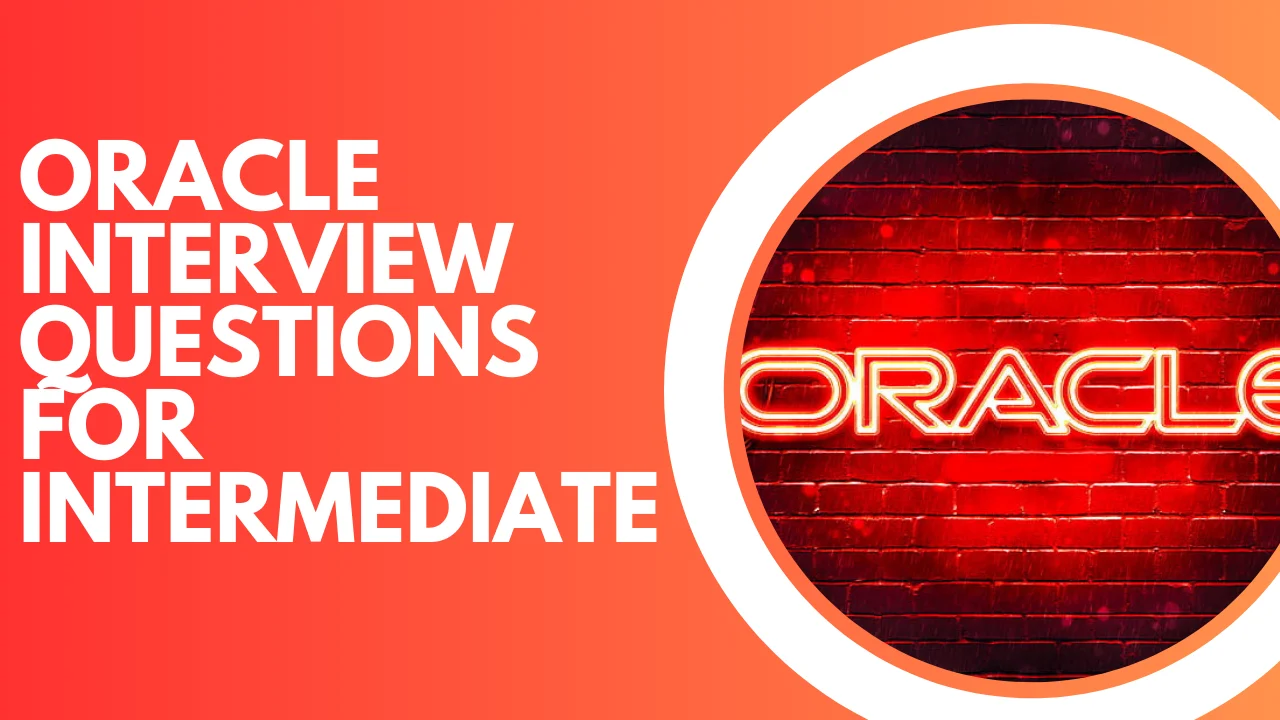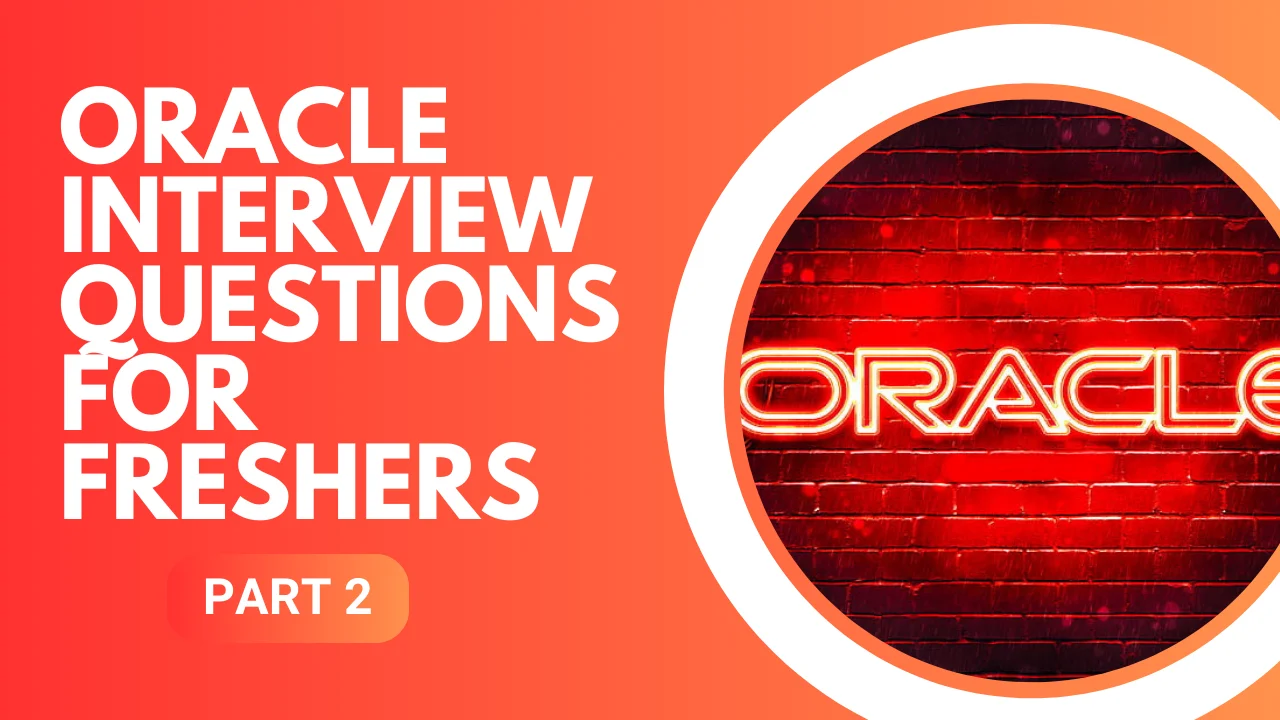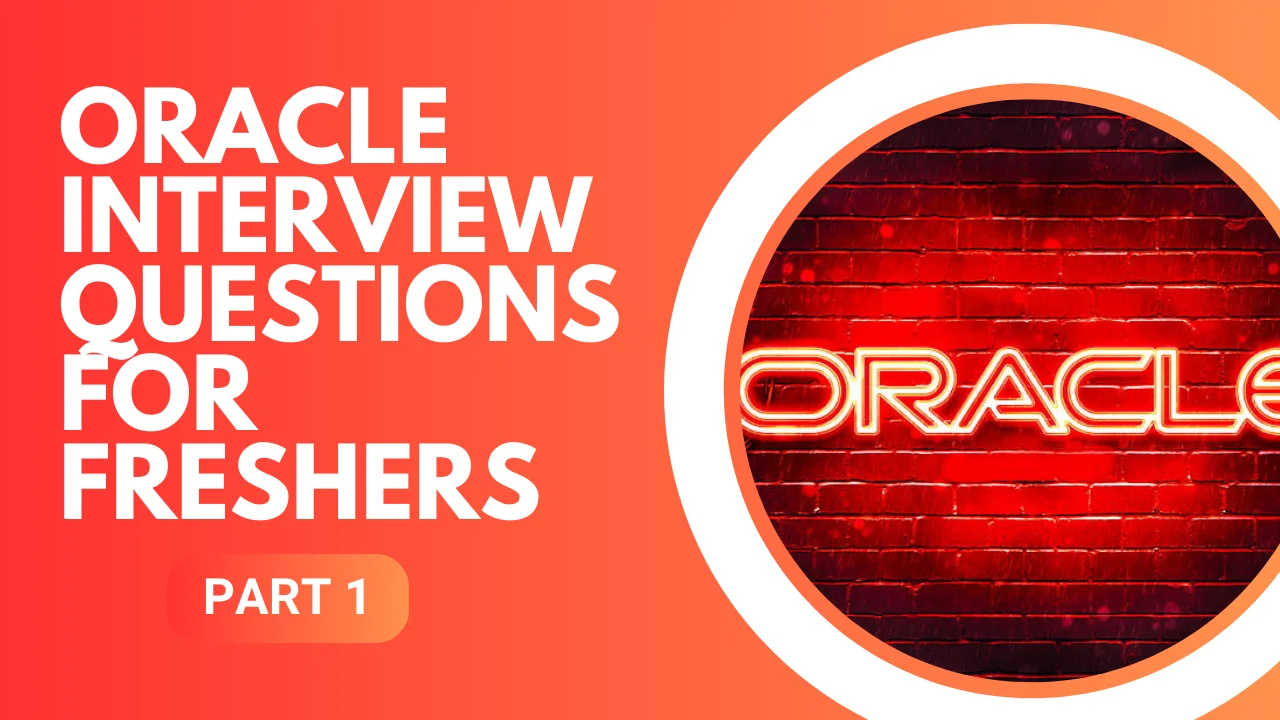Oracle Interview Questions for Intermediate

23. What is Integrity Constraint?
An integrity constraint in databases is a rule that ensures data consistency and accuracy within a table. It defines restrictions or conditions that must be met for data to be entered or modified, safeguarding the integrity of the database.
24. What is SQL?
SQL stands for Structured Query Language. It’s a standardized programming language used to manage and manipulate relational databases. SQL allows users to perform various operations like querying data, updating data, creating databases, and more.
25. What categories encompass the various types of SQL statements?
SQL statements can be categorized into Data Manipulation Language (DML), Data Definition Language (DDL), Data Control Language (DCL), and Transaction Control Language (TCL).
26. What is PL/SQL?
PL/SQL (Procedural Language/Structured Query Language) is an extension of SQL used in Oracle databases. It allows the incorporation of procedural constructs like loops, conditions, and variables into SQL, enabling the creation of more complex and powerful queries and programs.
27. What is a Literal?
In programming and databases, a literal is a notation representing a fixed value in a code or query. It can be a string, number, date, or any constant value directly specified within the code without referencing a variable or column.
28. Difference between SQL and iSQL*Plus?
SQL is a language used to manage databases, while iSQLPlus is an Oracle tool that provides a web-based interface to execute SQL commands and PL/SQL blocks. iSQLPlus is a specific implementation or tool for accessing and working with SQL in an Oracle environment.
29. What are SQL functions?
SQL functions are pre-defined operations that can take one or more arguments, perform computations, and return a single value. They can be mathematical operations, string manipulation functions, date and time functions, etc., used within SQL queries to perform specific tasks.
30. What is a Sub Query?
A subquery, also known as a nested query, is a query nested within another SQL statement (like SELECT, INSERT, UPDATE, or DELETE). It’s used to retrieve data necessary for the execution of the outer query and can be used in WHERE, FROM, HAVING, or SELECT clauses.
31. What is VArray?
VArray stands for Variable Array. It’s a data type in databases (like in Oracle) that allows the creation of arrays with a varying number of elements. VArrays have a fixed upper limit on the number of elements they can store, defined at the time of creation.
32. Which method of querying a table yields the fastest retrieval of data?
Index-based querying typically yields the fastest retrieval of data from a table. Using indexes allows databases to locate and access specific rows quickly based on the indexed columns.
33. What is the difference between hot backup and cold backup?
A hot backup is performed while the database is actively running, allowing users to access and modify the database during the backup process. In contrast, a cold backup is taken when the database is offline, ensuring no changes occur during the backup.
34. What are the uses of a database trigger?
Database triggers are special stored procedures that automatically execute in response to specific events, such as INSERT, UPDATE, or DELETE operations on a table. They are used to enforce business rules, maintain data integrity, and automate tasks based on database actions.
35. What is the difference between TRANSLATE and REPLACE?
TRANSLATE is a function used to replace multiple characters in a string with corresponding characters in another string based on their positions. REPLACE, on the other hand, substitutes all occurrences of a specified substring with another substring within a string.
36. What is Cross Join?
A cross-join in SQL is a type of join operation that combines each row from the first table with every row from the second table, resulting in a Cartesian product. It produces a result set with the total number of rows equal to the multiplication of the rows in both tables.
In conclusion,
Concluding the discussion on Oracle Interview Questions for Intermediate Level, this exploration offers insights into crucial database concepts and functionalities within the Oracle ecosystem. From understanding fundamental terminologies like snapshots, shared pool layers, and database objects to diving into more intricate aspects such as save points, control files, and parameter distinctions, this part laid a solid foundation for Oracle practitioners seeking to strengthen their knowledge. These questions not only prompt a deeper comprehension of Oracle databases but also serve as valuable preparation for navigating the complexities inherent in database management and development roles.
Ready to take your Oracle skills to the next level? Explore our top-notch Oracle Training in Chennai. Our expert instructors and hands-on approach ensure that you not only ace interviews but also thrive in real-world scenarios. To kickstart your journey to Oracle excellence, contact us at +91 9655-333-334. Secure your future today with the best Oracle Training in Chennai. Don’t miss out on the chance to propel your career forward!







